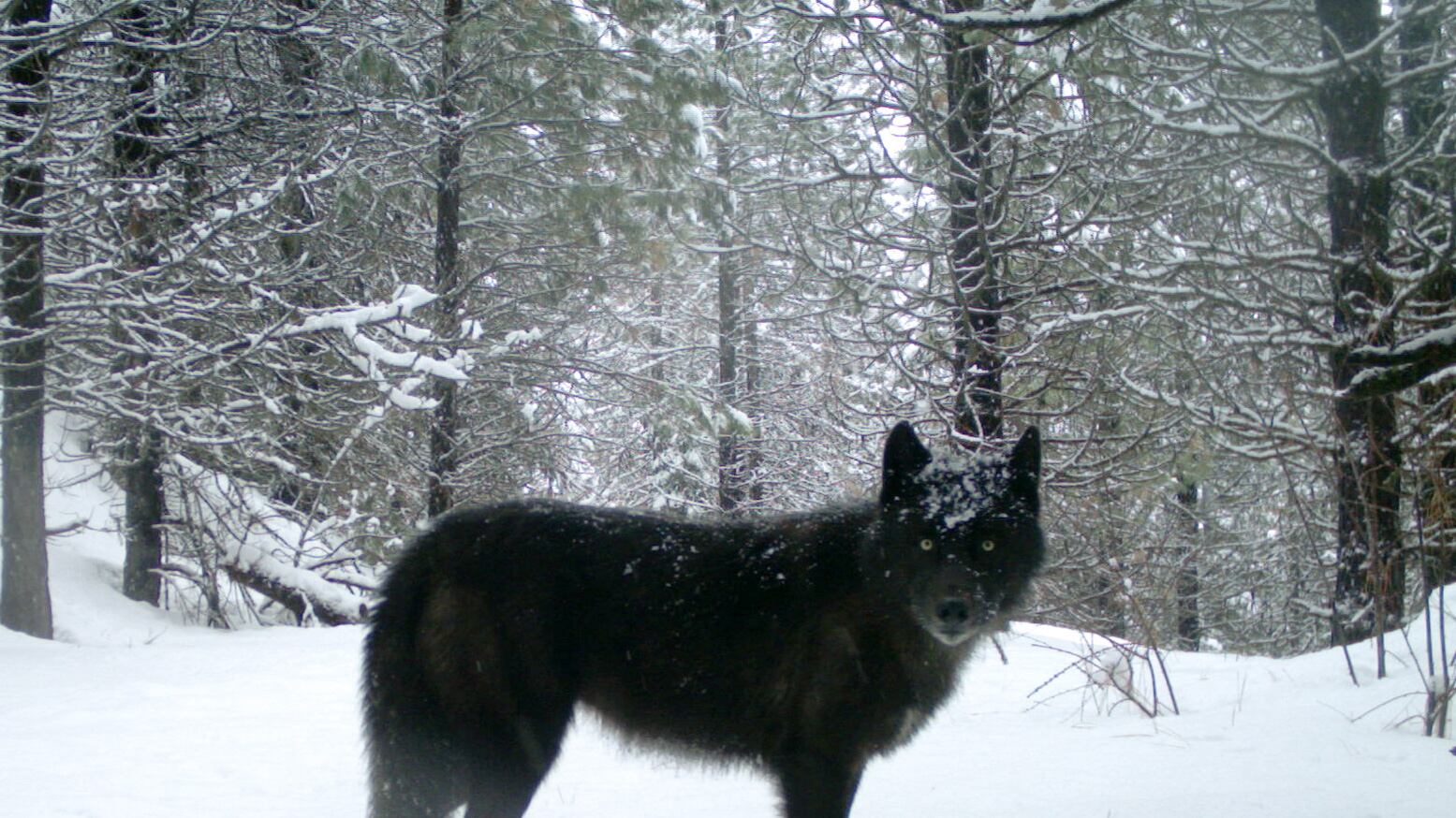Following donations from more than a dozen conservation groups, the Oregon Department of Fish & Wildlife announced this week that the reward amount has climbed to $47,736 for information that leads to an arrest or citation in multiple Eastern Oregon wolf pack poisoning cases.
“Poisoning is a horrific way to die and shows a blatant disregard and respect that we should have for our wolves and all wildlife,” said Marc Cooke, president of the non-profit organization Wolves of the Rockies.
Earlier this month, ODFW announced that, in February, Oregon State Police troopers discovered two deceased male and three female wolves in Union County. The five wolves made up the entire Catherine Pack. Toxicology reports showed the cause of death to be “consistent with poisoning.”
Then, between March and July, state troopers discovered three more dead wolves, all believed to be poisoned as well. State troopers also discovered two deceased magpie and one skunk—also poisoned, according to toxicology reports.
“The poisoning of Oregon’s wolves is a dark event in wolf recovery, but these ever-increasing reward pledges offer a ray of hope that those responsible will be arrested and prosecuted,” said Amaroq Weiss, senior wolf advocate with the Center for Biological Diversity, another donor group.
State officials hope the increased reward will incentivize people who may have information to come forward.
“When rewards get to this level—a level that can make significant changes in a person’s life—they might stop to consider something they heard or saw,” said Yvonne Shaw, the Stop Poaching Campaign coordinator for ODFW. “This could be the down payment on a house, or an investment in a college education. It’s a new truck. Or a new start.”
The public can report potential tips to the Turn in Poachers “TIP” line by calling (800) 452-7888, or email TIP@osp.oregon.gov.
As WW reported in October, poaching is a uniquely complex crime to prosecute (“Things Will Die,” Oct. 6, 2021). In 2019, the state Legislature passed a pair of bills that increased criminal penalties for poachers, and also carved out funding for a statewide poaching prosecutor.
Big game animals aren’t the only wildlife susceptible to poaching. On Tuesday, for example, OSP announced that it is seeking assistance from the public to help identify the person or people responsible for killing a bald eagle in the Cox Butte area, west of Junction City.
The following organizations have contributed to the reward fund in the wolf poisoning cases:
- Oregon Hunters Association
- Oregon Wild
- Humane Society of United States
- Center for Biological Diversity
- Defenders of Wildlife
- Northeast Oregon Ecosystems
- Predator Defense
- Cascadia Wildlands
- Wild Earth Guardians
- Wolves of the Rockies
- Trap Free Montana
- The 06 Legacy
- Greater Hells Canyon Council
- Peace 4 Animals
- World Animal News

